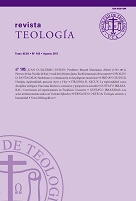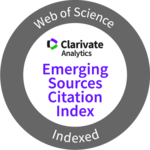Los actos intrínsecamente malos en Veritatis Splendor
Palavras-chave:
Actos intrínsecamente malos, Perspectiva persoalista y Relacional, Intencionalidad, Mandamientos, Moral de la obligación, Ley naturalResumo
The author proposes to remember the true meaning of the doctrine of intrinsi- cally evil acts and the conceptual framework in which it is interpreted. To clar- ify the place of the perspective from which to reflect on the moral act, he con- siders the implications of the so-called “third-person perspective” and of pro- portionality, which assume a standpoint outside the act itself, and the reaffir- mation that VS does of this doctrine in the more correct perspective needed for the assessment of human actions from the moral point of view: the perspective of the person who acts, called “first-person perspective,” which highlights the intentional character of human actions. In this context, the moral object is pre- sented in reference to the order of reason or the overall good of the human per- son, and in it, the apprehension that practical reason makes of the “order” of human actions toward good and the last end which is God, the intentionality and self-referentiality wich configures the acts of free human action, and the personal and relational concept of intrinsically evil acts.Downloads
Não há dados estatísticos.
Downloads
Publicado
2020-03-25
Como Citar
Irrazábal, G. (2020). Los actos intrínsecamente malos en Veritatis Splendor. Teología, 48(105), 291–299. Obtido de http://200.16.86.39/index.php/TEO/article/view/2244
Edição
Secção
Artículos
Licença
Direitos de Autor (c) 2020 Teología

Este trabalho encontra-se publicado com a Licença Internacional Creative Commons Atribuição-NãoComercial-CompartilhaIgual 4.0.














 Teología
Teología